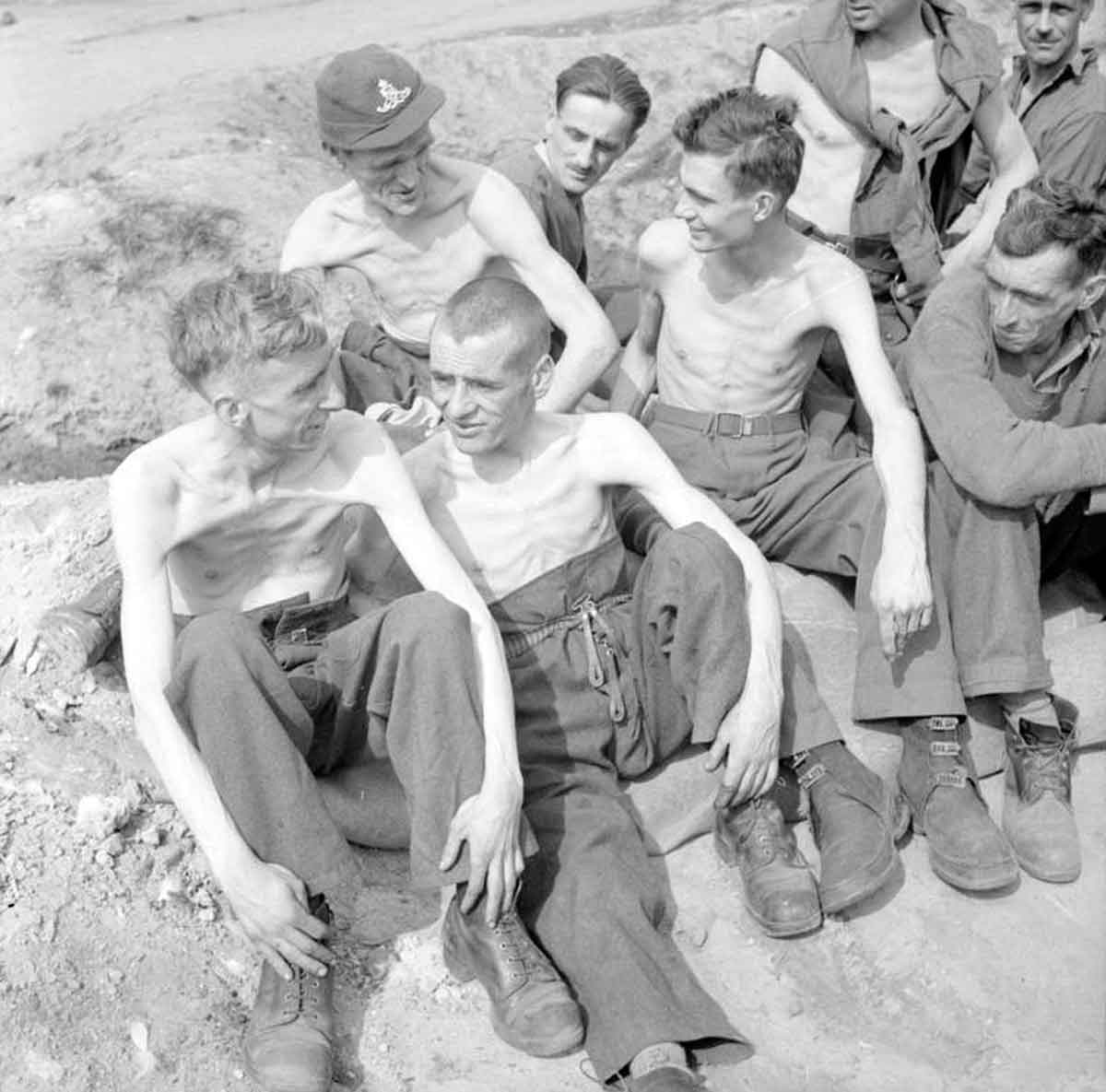Today is the 75th Anniversary of the D-Day Landings at Normandy – a brave move which heralded the beginning of the end of WWII in Europe. To acknowledge the occasion, we remember the story of one of the brave young soldiers involved in the landings – Cliff Stevens. Cliff was a much-loved resident of “The War Vets” Village Narrabeen. His greatest fear was that he would be forgotten when he passed on. Cliff, on this day as on many others, we remember you. This is Cliff’s story…
Born in 1922 in England, by the age of seven I was living in an orphanage for boys called Fortesque House in Twickenham, with my brother. My mother had succumbed to peritonitis and my father, who had been in an industrial accident, couldn’t care for their six children. It was heartbreaking at the time, but my experience at the orphanage was wonderful. Come 15, however, I was out in the world working.
When war was declared I volunteered straight away. The chap on the gate said “How old are you son?” I said “Old enough”, even though I wasn’t. They had tables manned by Sergeants and I approached one. He said “You’re too young, come back in a year or two.” So I left, came straight back in and went to another table, over and over until they said “Yes, alright. Sign here.” The moment I signed they gave me a rifle in one hand and five pounds in the other. Five pounds! I’d never seen so much money!
We went through the bombing of London; that was terrible. I was on the 40mm Beauforts gun, which can fire at a rate of 120 a minute in clips of six, if you can load it that fast.
After the Battle of Britain all we did was practice, practice, practice for Normandy (D-Day). We’d plug up all the guns to make them watertight, then we’d go into the water off the coast of Devon and back again at nightfall to clean out the guns, day in and day out for months.
I was always as sick as a dog on troop ships and when D-Day came it was no different. Of course D-Day was intended for the 5th but because of bad weather it was postponed. Tides and the full moon meant we went ahead on the 6th, so there were two nights we had to line up at 3am for rum. If you don’t like rum (as I didn’t) that’s one thing but if you’re sea sick and made to drink it, it’s doubly awful. In our heads, though, we were thinking “Cor let’s get stuck in!” We were thinking of Coventry, Liverpool, Manchester and of course London and the devastation that had occurred there.
I had two lucky escapes. The first was a close shave with a sniper on Gold Beach during the landings; the sand ricocheted onto my face from the bullet, that’s how close it was. It frightened the hell out of me. The second was in Antwerp in the top floor corner of a house: a V2 bomber dropped its load on us and by some unexplainable miracle I survived when many others didn’t…

Our job was to push across France and cross the Rhine. The French welcomed us everywhere we went. The locals had paid a heavy price, particularly in the areas where the Germans knew the resistance movement was strong. They had suffered so much. As the Germans retreated they took it out on the French, destroying everything they could.
When the war finished we were in Fallingbostel. We were the first in to free the prisoners of nearby Bergen Belsen concentration camp. It was a shock finding them and seeing them wandering around in a sort of pyjama uniform, finally free. The villagers of Fallingbostel insisted they knew nothing about it, so we made them watch a movie in the cinema showing the undeniable truth. I was incredulous that they didn’t know what was happening virtually on their doorstep. Trucks came to take the prisoners back home to their own countries be it Holland, Belgium etc. I remember the day the Russian truck drew up to take them all back to Russia – nobody wanted to get in. They were separated, screaming and forced onboard. The odd one or two tried to escape, unsuccessfully according the shots we heard.
When the war was over I worked as an Officer with the Control Commission of Germany from 1946 to 1950, working at Hamburg Airport where I was responsible for all the transport – graders, rollers, fire engines, ambulances, taxis, for the extra crews working on the Berlin Airlift. The Russian road block wouldn’t allow anything through so we flew in everything we could: coal, wheat, everything. While working there, a mechanic and I took a grader and levelled a piece of ground, turning it into a speedway track. That’s when my interest in motorbikes turned into a speedway hobby, and I took on the name Lucky Stevens. It was no brakes, straight through, very fast and potentially dangerous. And fun.
By Helen Johnston

Continue Reading
Discover our Services
Home Care
Retirement Living
Residential Care
Veteran Services
Download a brochure
We'll never share your email address and you can opt out at any time, we promise


